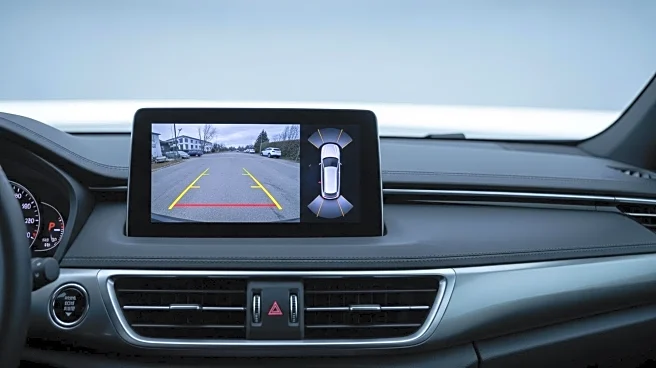What is the story about?
What's Happening?
Ford is recalling 1.9 million vehicles globally due to issues with rear-view cameras that can display inverted, distorted, or blank images. This recall affects various models from 2015 to 2019, including Lincoln MKC, Lincoln Navigator, Mustang, F-250, F-350, F-450, F-550, Expedition, Edge, Transit, Transit Connect, Econoline, and Ranger. Approximately 1.45 million of these vehicles are in the United States, with additional units in Canada and other markets. Ford has acknowledged 44,123 warranty claims related to this issue and 18 accidents, though no injuries have been reported. Dealers will inspect and replace the faulty cameras. This recall follows previous actions, including a $165 million civil penalty Ford agreed to pay after failing to recall vehicles with defective cameras promptly.
Why It's Important?
The recall is significant as it addresses a critical safety feature in vehicles, the rear-view camera, which is essential for preventing accidents during reversing. The large number of vehicles affected highlights the scale of the issue and the potential risk to drivers and pedestrians. The recall also underscores the importance of timely responses to safety defects by automakers, as delays can lead to regulatory penalties and damage to brand reputation. Ford's previous penalties and investigations by the National Highway Traffic Safety Administration (NHTSA) emphasize the regulatory scrutiny automakers face in ensuring vehicle safety. The recall impacts Ford's operational costs and may influence consumer trust and future sales.
What's Next?
Ford will continue to work with dealers to replace the faulty cameras in affected vehicles. The company may face further scrutiny from regulatory bodies if additional issues arise or if the recall process encounters delays. Consumers will need to stay informed about the recall and ensure their vehicles are serviced promptly. The automotive industry may see increased pressure to enhance quality control measures to prevent similar issues. Ford's handling of this recall could influence its future regulatory interactions and consumer perceptions.
Beyond the Headlines
The recall highlights broader industry challenges in managing complex electronic systems in modern vehicles. As cars become more reliant on technology, automakers must ensure these systems are reliable and safe. The incident may prompt discussions on the ethical responsibility of automakers to prioritize safety over cost-cutting measures. Additionally, the recall could lead to increased collaboration between automakers and suppliers to improve component quality and reliability.
















